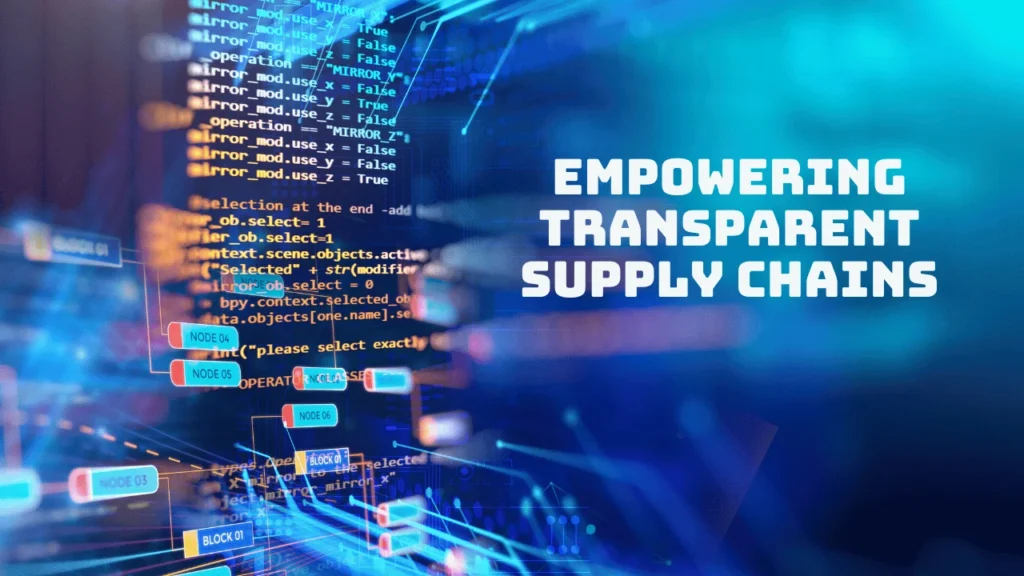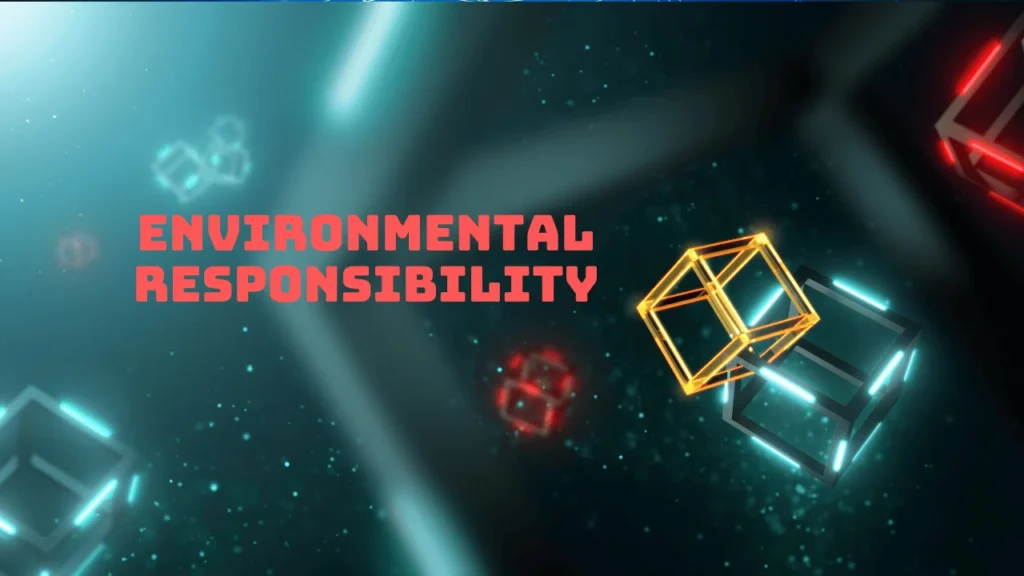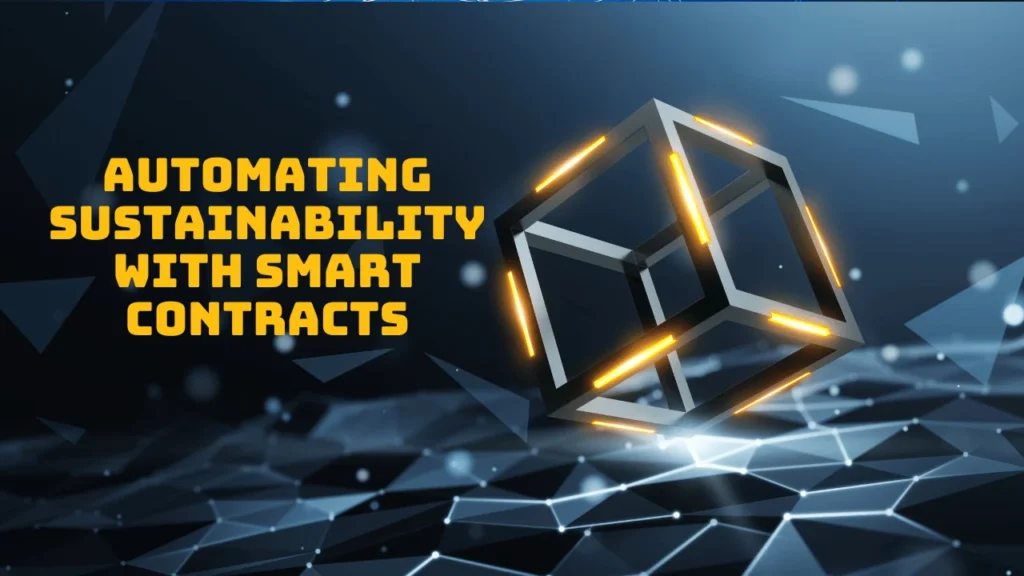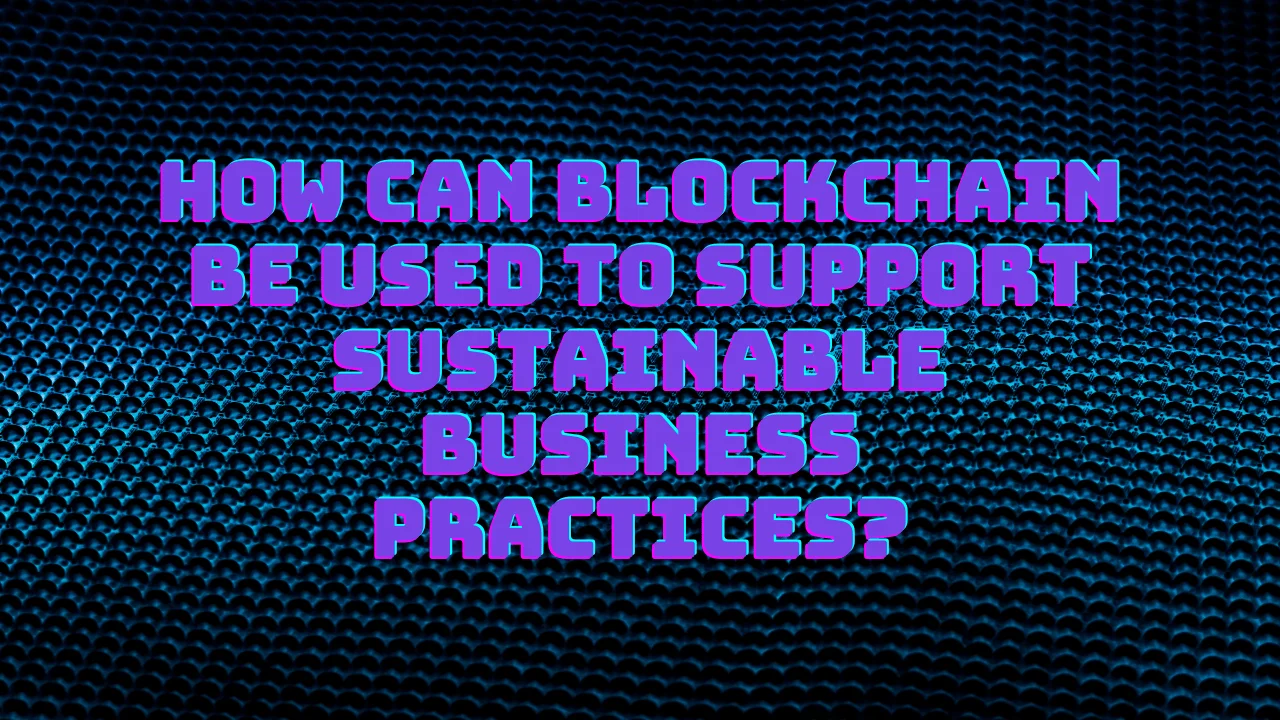The pursuit of sustainability has emerged as a top priority for businesses in all industries in today’s dynamic global marketplace. In this changing landscape, blockchain technology is proving to be an invaluable tool, providing new possibilities to promote openness, effectiveness, and responsibility in environmentally conscious company practices. Blockchain technology has the ability to transform entire industries and make the world a better, more ethical place by supporting sustainable business practices. This article explores the many ways in which blockchain can help with this.
Empowering Transparent Supply Chains

Traceability and Accountability
When it comes to supply chains, blockchain technology provides an unprecedented degree of transparency and responsibility. Businesses can track and confirm the origin of products to make sure they are ethical and environmentally friendly by using a decentralized, tamper-proof record of transactions. This openness not only reassures buyers, but it also deters exploitative labor practices and damage to the environment.
Reducing Counterfeits
False goods, which frequently evade the environmental and ethical standards established by real businesses, constitute a serious threat to sustainable business practices. To ensure consumers receive authentic products while supporting ethical manufacturing practices, blockchain technology can authenticate products throughout their entire lifecycle, drastically reducing the prevalence of counterfeits.
Promoting Ethical Sourcing
Using blockchain technology, companies can demonstrate the moral origin of their goods at every stage of production. This skill is especially important in sectors with complicated and frequently hidden supply chains, such as the fashion and electronics industries. Supporting fair trade efforts and promoting responsible sourcing, blockchain technology provides a transparent trail of a product’s lifecycle.
Guaranteeing Authenticity
For consumer trust and brand integrity, product authenticity is paramount. The immutable ledger of blockchain technology makes it impossible to change product details, making it an excellent tool for confirming the legitimacy of products. Claims about organic, fair trade, or sustainably sourced products must be made with this level of transparency in order to give customers confidence and back ethical business practices.
Environmental Responsibility

Decentralized Energy Solutions
Decentralized power grids and P2P energy trading are being made possible by blockchain technology. By making renewable energy distribution and use more efficient, this innovation helps lessen our dependency on fossil fuels and bolsters our fight against climate change. Blockchain technology allows anyone to become an energy producer or trader, which in turn promotes the use of renewable energy sources and increases demand for them.
Streamlining Waste Management
Waste management and recycling are two areas where innovative blockchain applications are revolutionizing the industry by providing a transparent and traceable system. This technology has the potential to improve recycling operations and encourage better waste management. Blockchain technology lends a hand to green initiatives by encouraging responsibility and longevity in waste management.
Tracking Carbon Emissions
The use of blockchain technology has many potential applications, including the monitoring of carbon emissions, the settlement of carbon credits, and the enforcement of environmental laws. More precise tracking of carbon footprints by businesses is now possible, which aids international initiatives to curb emissions of greenhouse gases and slow the rate of climate change.
Automating Sustainability with Smart Contracts

Automating and enforcing sustainable business practices is made possible through smart contracts powered by blockchain. Environmental regulations, renewable energy project management, and ethical labor practices can all be improved with the help of these self-executing contracts. Smart contracts automate processes and remove middlemen, which leads to cost savings, increased efficiency, and more transparency in environmentally responsible company practices.
Tokenization of Sustainable Assets
One revolutionary way to fund environmentally friendly projects and assets is the tokenization idea, which is made possible by blockchain technology. Investing in sustainability can be made more accessible, efficient, and transparent through tokenization, which involves converting physical assets and rights into digital tokens on a blockchain.
Increased Liquidity for Green Investments
Sustainable assets are made more liquid through tokenization, which facilitates trading for investors. A wider variety of investors, from individuals to big institutions, are drawn to green finance due to its increased liquidity, which means more money is going into sustainability projects.
Transparent Investment Tracking
The built-in transparency of blockchain technology enables real-time tracking of the use and impact of investor funds. Investors and project operators can trust each other more and put more money into sustainable initiatives when there is this much transparency about how the money is being spent.
Reduced Transaction Costs
Traditional financing methods are made much more affordable by the efficiency of blockchain technology. Sustainable investments are made more accessible to a larger audience through tokenization, which streamlines processes, eliminates intermediaries, and lowers transaction fees.
Democratizing Access to Green Finance
By decomposing big assets into smaller, more affordable tokens, tokenization democratizes access to investment in sustainable projects. This opens the door for investors of all socioeconomic backgrounds to participate in sustainability initiatives.
Innovations in Blockchain for Climate Action
Innovative solutions to directly combat climate change and promote environmental sustainability are within the realm of possibility with blockchain technology, which goes beyond financial transactions and supply chains.
Renewable Energy Crowdfunding
Companies and individuals can now contribute directly to the development of renewable energy sources like solar panels and wind turbines through crowdfunding initiatives made possible by blockchain platforms. We can speed up the shift to a low-carbon economy with this grassroots strategy for funding renewable energy.
Climate Change Mitigation Efforts
Applications built on the blockchain can help reduce greenhouse gas emissions by improving carbon trading systems, keeping tabs on deforestation, and increasing biodiversity. To make sure environmental projects are successful, blockchain provides a safe and transparent platform.
Sustainable Agriculture Initiatives
Increased transparency, less food waste, and support for fair trade are three ways in which blockchain technology might revolutionize sustainable farming. Sustainable farming practices are incentivized by blockchain technology, which tracks the production and distribution of food. This helps to maintain a healthy planet and its inhabitants.
Challenges and the Road Ahead
Scalability, energy consumption, regulatory hurdles, technological complexity, and other issues all work against blockchain’s widespread use in environmentally responsible company practices, despite the technology’s enormous promise. To overcome these obstacles, stakeholders must work together continuously, innovate, and have regulatory frameworks that support their efforts. The role of blockchain in supporting sustainable business practices is expected to expand substantially as the technology develops and these concerns are resolved.
Must Check: What Sets Blockchain Solutions Apart from Conventional Record-Keeping Solutions?
FAQs
Q1: Can blockchain technology really reduce carbon emissions?
Yes, blockchain technology can make carbon trading and tracking easier, which will encourage people to cut back on their carbon emissions because it will make everything more transparent and efficient.
Q2: How does blockchain support ethical labor practices?
How can blockchain technology promote fair labor practices? One answer is that it makes it easier for businesses to check if their products are manufactured without exploiting workers.
Q3: Is investing in tokenized green assets secure?
As with any investment, investors should conduct due diligence, and blockchain technology provides improved security and transparency. Blockchain does offer a strong basis for trust due to its inherent security.
Q4: Can small investors contribute to renewable energy projects through blockchain?
Crowdfunding platforms that use blockchain technology do indeed make it possible for regular people to invest modest sums in green energy initiatives, thus expanding the pool of people who can afford to do so.
Q5: Are there any successful examples of blockchain in waste management?
In order to improve recycling programs and waste tracking, various initiatives are utilizing blockchain technology. This technology enhances efficiency and transparency in waste management processes. However, specific examples will vary as the technology and sector progress.
Final Words
To sum up, blockchain technology is exciting because it could help promote sustainable business practices in many different industries. Blockchain technology has the potential to make the world’s economic system more sustainable and ethical by increasing openness, responsibility, and productivity. Blockchain technology has the potential to usher in a new age of ethical and environmentally conscious business practices, which is becoming more important to both companies and consumers.

Brandy Stewart, an enchanting wordsmith and seasoned blogger, weaves compelling narratives that transport readers to uncharted territories. Infused with perceptive viewpoints and dynamic storytelling, Doris exhibits a command of language that enthralls both hearts and minds, leaving a lasting mark on the literary panorama.

